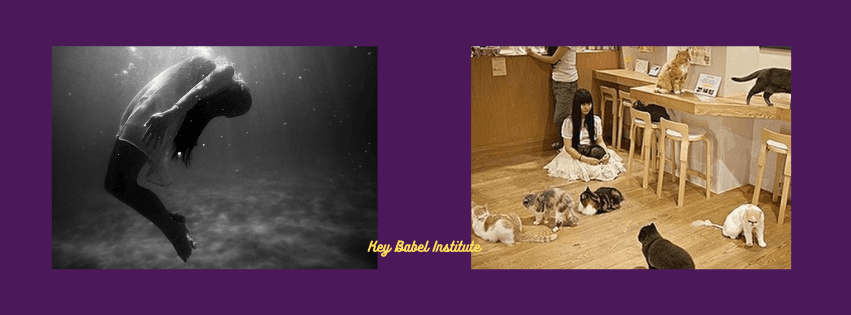At Key Babel Institute we believe wholeheartedly in the benefits and efficacy of adults learning foreign languages in a full immersion class or setting. Many reports in the recent past were convinced that adults were already too late to learn a new language effectively, so how much worse could it be for a grown adult with a full-time career and children or even a business to try and learn a language with no input of their mother tongue?
We've decided to take a look that extends beyond our own experiences with our students and see what the results look like across the language learning space. Let's first define what this immersion technique is. Then we can get into the type of class setting implementing this technique.
What does language immersion really look like?
If we take a look at the definition of "immerse" by itself it means to plunge into something that surrounds or covers. Thinking in very literal terms, many people imagine being "immersed" in the middle of the ocean. If you couldn't swim, you would simply drown. However, we are speaking about learning a language. There's no way to drown. It simply means that instruction is based on extensive exposure to surroundings or conditions that are native or pertinent to the object of study. This should bring to mind being surrounded by something you truly enjoy on all sides, like cute kittens, chocolate cake, or peace and quiet.

In an immersive language class, you can pretend that you have stepped into a new country or city for the time being. Depending on the people you are communicating with, it can be extremely awkward that you want to only speak your own mother tongue. In your host country, the locals most certainly would also be more comfortable with their own mother tongue. Speaking a language encompasses much more than just your vocabulary, grammar and tone. In this blog post, we touch a bit on culture being a big part of language.
If you think back, you learned your first language in ... your first language. The mind makes it all make sense after a while, regardless of age. Our brains are used to turning bits of something's into processes and systems. When we learn to ride a bike or cook for ourselves, our brain makes note of everything needed and tucks it away for future use.
Adults Should Rock at Learning
If were being honest, adults have so many skills by the time they are out of school. We know how to listen to an argument, consider it, and then give our own argument or explain why we agree. We can read a story and write up a response. We are very, very good at twisting something into a joke or adding a special nuance.
We like to say "work smart, not hard". This is precisely the reason adults can learn a new language much better than children. We like to use something called leverage. Children are more inclined to go through the full learning process, creating their own hypotheses and doing many experiments. Adults will see something and use previous knowledge to figure it out. Some examples would be using Latin to learn the romance languages or reading translations of books they've already read.

What Will Immersion Do for Adults?
Long story short? With commitment, you're looking at native-like processing of the language. Yes. You read that correctly. Opting to learn a language through the immersion method will put you at the native level of fluency. It appears that life really gets in the way of adults learning foreign languages. This is documented in a study performed by Georgetown University Medical Center researchers.
So don't write us off so quickly for preferring all students from 0-125 years old take our classes in full immersion. We suggest it because we love the possibilities that you can achieve based on it. It may catch you off guard at first, but with a bit of routine and a lot of natural environments, you will be able to achieve your goals.
What do you think? Have you tried the full immersion route?